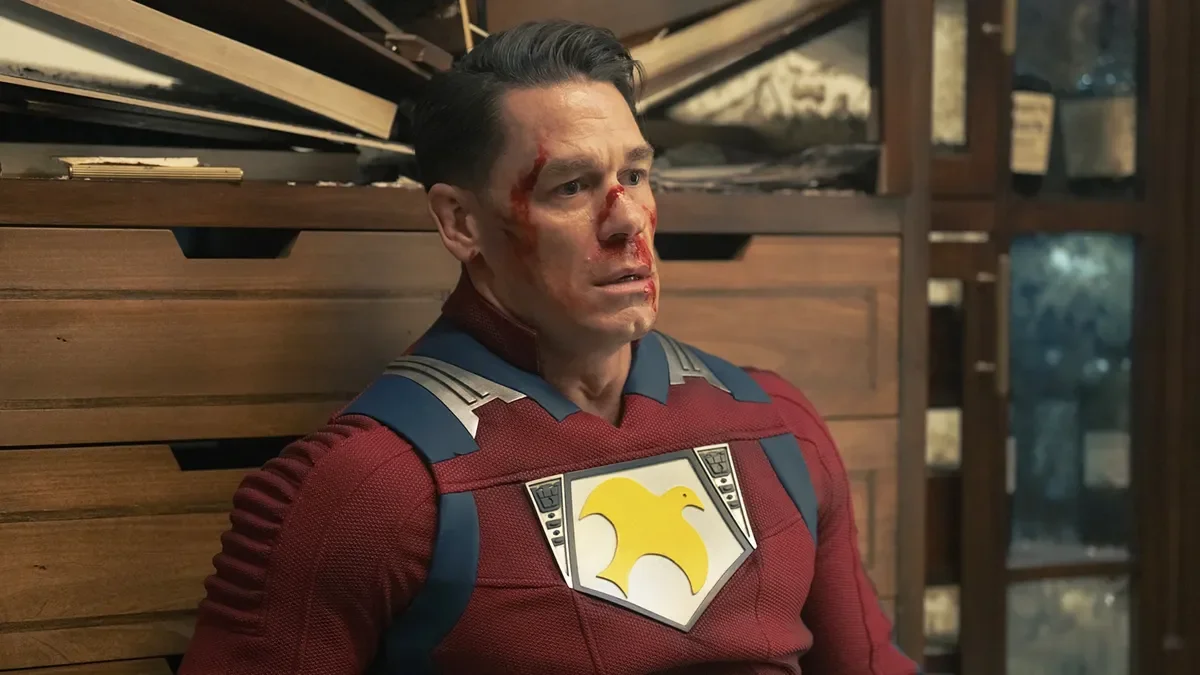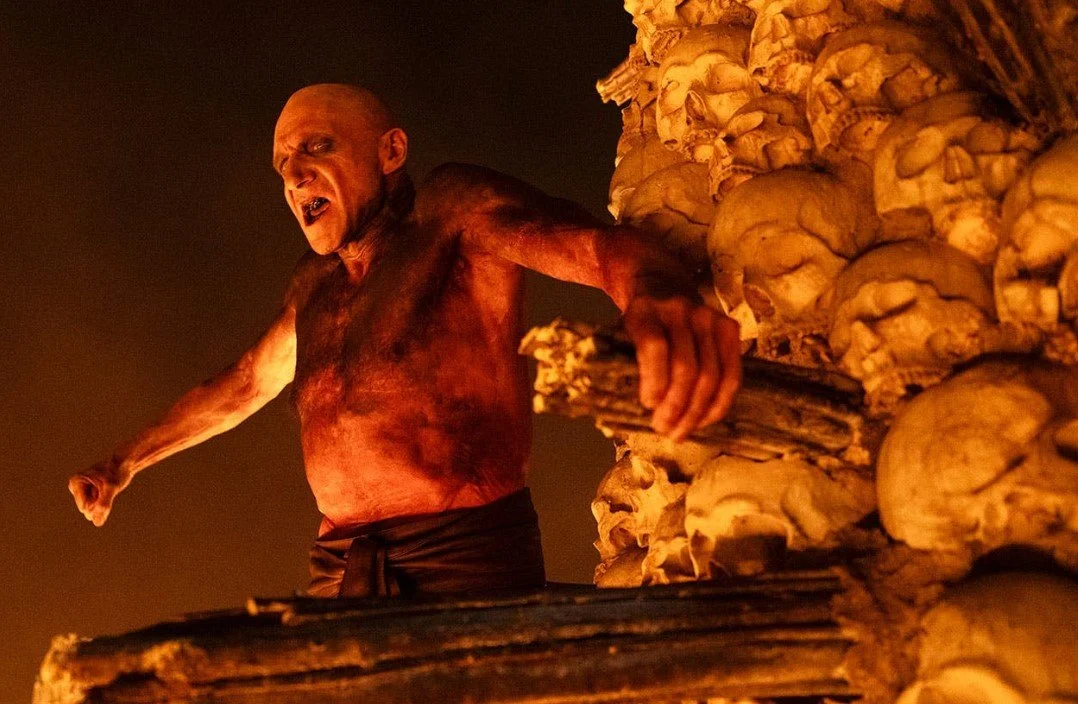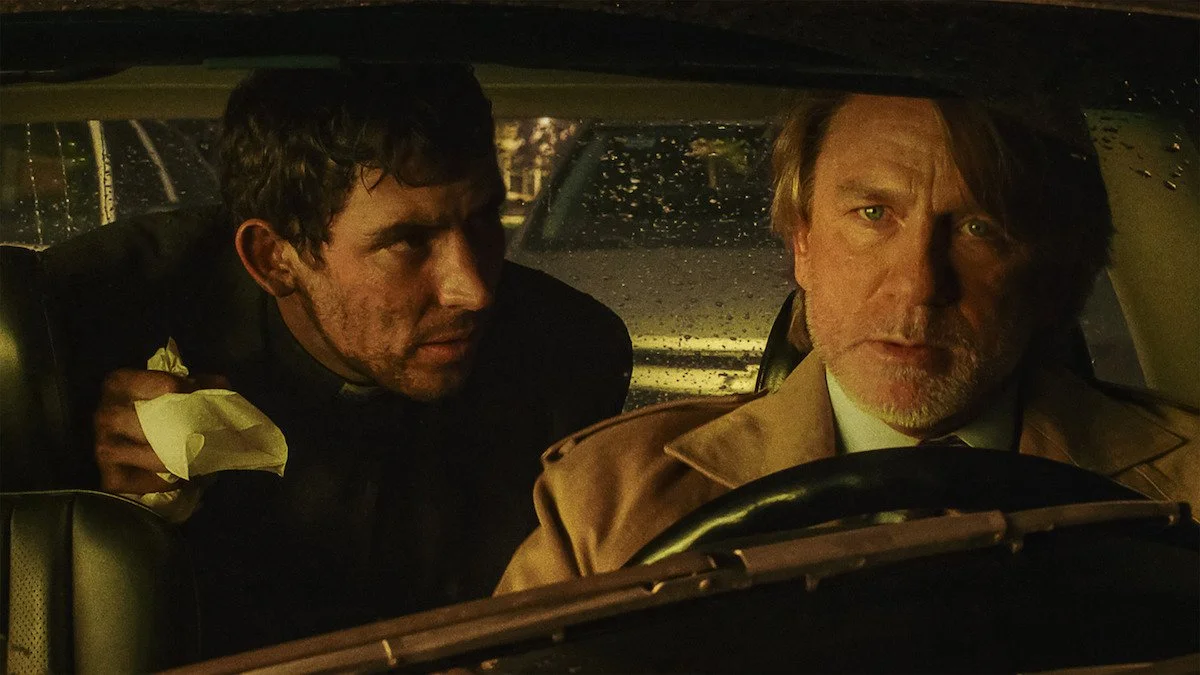‘Peacemaker’ Season 2 REVIEW: Chaos Across Dimensions and A Run For Salvation
‘Peacemaker’ Season 2 REVIEW: Chaos Across Dimensions and A Run For Salvation
This review contains spoilers for ‘Superman’ (2025) and ‘Peacemaker Season 2.’
When the news of James Gunn’s Peacemaker setting its second season post-DC Extended Universe and being released just a month after Superman marked a new era for DC storytelling, fans, and even casual viewers. were eager to know what would come out of the series’ soft reboot, so to speak, leaving parts that stuck and removing remnants of the DCEU.
A major factor, of course, is the appearance of the Justice League in the first season’s finale, or should I say Jason Momoa’s Aquaman and Ezra Miller’s The Flash, while the rest were just silhouettes. It was tongue-in-cheek. With the first episode of season 2 giving a refresher on what happened, it felt like a Mandela effect when, instead, we got the Justice Gang, with brief dialogue from Nathan Fillion’s Guy Gardner and Isabela Merced’s Hawkgirl.
With no overcomplicated reasoning as to how Peacemaker and the rest of the 11th Street Kids — Leota Adebayo (Danielle Brooks), Adrian Chase / Vigilante (Freddie Stroma), Emilia Harcourt (Jennifer Holland), John Economos (Steve Agee), and Eagly — have been integrated into the new DC Universe (DCU), Gunn managed to just playfully gaslight everyone, dusting off more of the explanation and moving on with it.
The season perfectly leads right into the concept of pocket universes, established in the first season, though not extensively, and Superman with Lex Luthor, along with LutherCorp, which basically drove that particular film to its third act. The Quantum Unfolding Chamber (QUC) housed Chris’ dad, Auggie Smith / White Dragon (Robert Patrick), with weapons and his Peacemaker helmets.
I think it being a major driving force for this season makes it appealing, with Chris being motivated to live in a different dimension where he thinks it is “better,” ultimately making a high concept — such as different dimensions and multiversal adventures — a relatable feeling when the main character and even the narrative at large are driven by a more personal motivation.
In this case, Chris wants to live in a world where his brother, Keith, is still alive, who accidentally died at a young age by his own hands when their father forced them to fight for betting. He also wants to live in a world where he gets to feel his love for Harcourt reciprocated, as the Harcourt in the main universe constantly dodges Chris’ desire for clarity and assurance.
When he transports into another dimension, it immediately becomes chaos when he suddenly meets his other self from the universe, accidentally killing him in the process during their standoff. Chris, therefore, takes his other self’s place and goes to live in a world he deems “perfect.” It’s everyone’s dream and desire to start fresh and enter a world that seemingly is all in our favor. He meets the world’s Keith and his dad (who is much nicer in comparison to the evil and white supremacist father in the main universe). Chris is now living a life he thought he could never have.
But, of course, it still sounds too good to be true. With his friends, the 11th Street Kids, going on a search to get him back to their universe, the beauty and magic of this season is in how the small moments are carefully placed without spoonfeeding the audience to full effect. On top of the rumblings, theories, and possible scenarios thrown around by fans on social media, the “perfect” dimension isn’t too perfect at all.
With its focus on multiversal-style shenanigans while remaining grounded in character — something I’d argue showcases Cena at his best so far — the sheer brilliance lies in watching the heavy emotional moments take their toll on him. As he clings to the failures of his past, grapples with loss and heartbreak, and still strives to become a “better” hero, Gunn fully utilizes the wrestler-turned-actor’s strengths.
Peacemaker unexpectedly became a career-defining role for the WWE legend, and it shows in how he loves playing the character throughout his performance this time around. As a WWE fan, I can finally say that I get to “see” (pun intended) how his performance as John Cena — the wrestler, with John Cena — the actor.
Meanwhile, as the season slowly peels back what the narrative has been trying to keep a secret all along, with the final three episodes, even hidden from early screenings for the press, it is revealed that the “perfect” world is actually a world where the Nazis won the war. Episode six stands out as the clear highlight of the season. However, there also seems to be a lingering weight of expectation — perhaps unintentionally set by Gunn himself — that the remaining episodes leading up to the finale would be major, can’t-miss events.
But looking back, I like how it wraps up Chris’ story from when we first met him at the beginning of this season. He started out trying to get a try-out at the Justice Gang, wanting to do good and be a hero, only to feel out of place from the very same Earth and even shunning away the closest friends he’s got. Transporting to another Earth seemed perfect to him — until he realized it wasn’t. He comes to understand that the things he perceives as “wrong” are actually reflections of himself, the very flaws that ruin everything and everyone around him.
Apart from the expectations of grand-scale crossovers, cameos, or major setups, I might be among the few viewers who felt genuinely satisfied with how the season wrapped up. The story remained grounded and deeply human, centering on a morally gray and imperfect character, while the wild, wacky, and fantastical world of the DCU served as the backdrop.
Not to mention the great additions, like Tim Meadows as Agent Langston Fleury — who I expected to make a splash with his all-timer comedic timing. As for Frank Grillo’s Rick Flag Sr., it still takes some getting used to in order to feel truly invested in his character. Apart from his thirst for vengeance over the death of his son, Rick Flag Jr., at the hands of Chris, his role as a major “antagonist” feels only valid, given his motivations. With how the season concluded, I do hope James Gunn has a clear purpose for including him across so many DCU projects so far — even counting his voice role in Creature Commandos.
Ultimately, the season finale leaves the door open for what’s to come, but not so wide that it feels like empty promises or yet another series of setups and teases that ultimately go nowhere. With all the brave and bold decisions this season has shown, I hope we continue to see a stronger focus on character building as a top priority, letting everything in the background — and the universe at large — naturally fall into place.
If Gunn wrote and helmed Superman out of a desire to bring more care, hope, and kindness to the forefront of this world, then the second season of Peacemaker demonstrates how even our flaws and mistakes as humans can be guided by the people around us, our loved ones, rather than by escaping to a “perfect” world to start from zero. It’s about confronting and accepting our past mistakes, recognizing that the world will always demand more from us, whether it’s about being a better human being or just doing what we think is right, because it’s a hungry world, indeed.
As a side note, the opening intro for the second season, “Oh Lord” by Foxy Shazam, will always be memorable, not just for the memes, but because it’s an absolute banger.
All episodes of ‘Peacemaker’ season 2 are now streaming on HBO Max.












